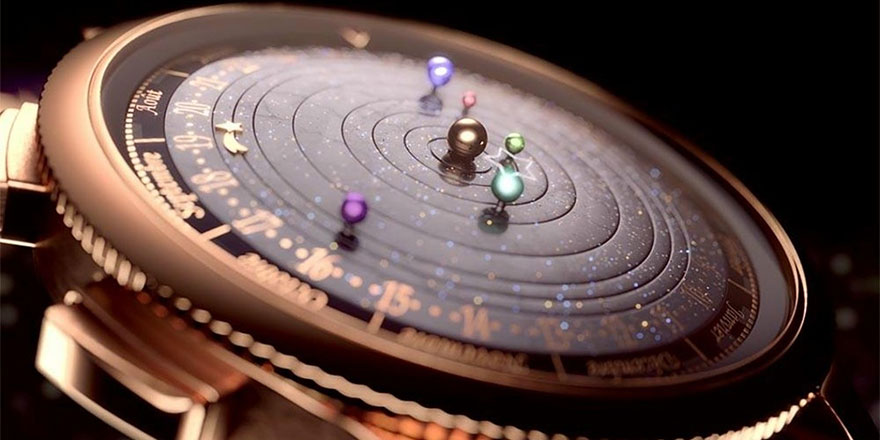the study and measurement of time.
the art of making clocks and watches.
Exclusive, exceedingly expensive and technologically exotic, watches of this variety are the esoteric toys of the urber rich, wonderful to look at but out of reach for the mortals of the world.
Watches & Wonders 2022 landed this week, and with it the watch industry dropped lab-grown gems, light-sucking cases, and 3D-printed gold.
GENEVA’S WATCHES & Wonders fair, essentially the CES of the watch world, brings together almost 40 of the industry's biggest brands, including Rolex, Patek Philippe, Tudor, and IWC, alongside a sprinkling of smaller, independent marques, to all reveal at once their major launches for the year. It's big business. Despite inevitable Covid-related downturns—particularly in an industry still resistant to ecommerce—in 2021, Swiss watch exports totaled a value of more than $24 billion.
You can't buy this ...
Independent watchmaker H Moser & Cie has the unique license in watchmaking to use Vantablack, the super-black coating that, with 99.965 percent light absorption, is the darkest human-made material on the planet. So far it has produced a number of watches with bewitching Vantablack dials, but at this year's Watches & Wonders it has revealed an entire watch covered in the substance.The coolest of them all ...

The Midnight Planétarium watch is an incredible feat of engineering, design and artistic craftsmanship. Besides showing the time, it also accurately displays the movement of six planets in our solar system as they orbit the Sun.
Each of those six planets is represented by a precious or semiprecious stone selected to represent that planet’s color – serpentine for Mercury, chloromelanite for Venus, turquoise for Earth, red jasper for Mars, blue agate for Jupiter and sugilite for Saturn. The two other planets in our solar system were excluded from this astronomical watch because the lengths of their orbits would make their movements on the watch imperceptible and impractical – Uranus orbits the sun in 84 Earth years, and Neptune makes the trip in 164.
Time keeps on slippin', slippin', slippin', Into the future. - Steve Miller Band





No comments:
Post a Comment